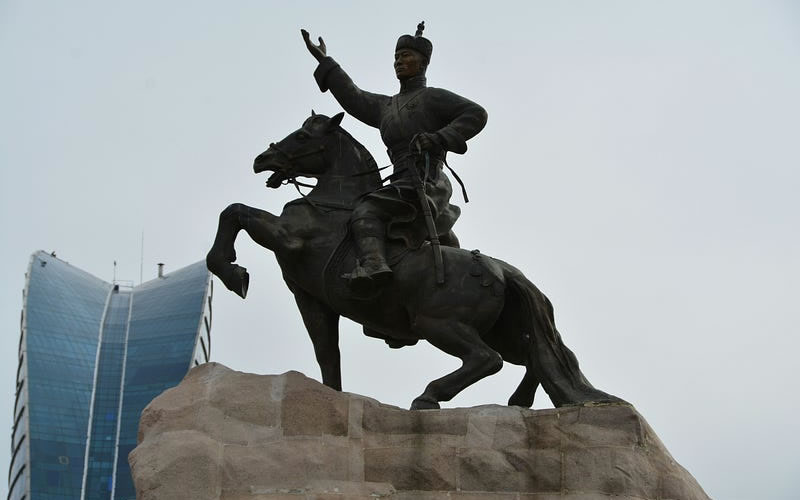Throughout history, human kingdoms have been established through conquest and expansion. History remembers emperors, generals, and rulers who gained power by dominating others. Jesus demonstrates a radically different picture of true authority.
He does not rise to kingship by defeating enemies through violence. He receives universal power because He gives Himself in sacrificial love. The Book of Revelation reveals a surprising truth: true authority is not shown by conquest, but by sacrifice. It is sacrifice, not a show of force, that proves one’s worthiness to rule.
Jesus’ Authority Rooted in Sacrifice
In Revelation 5, the heavenly throne room announces why the Lamb alone is worthy to open God’s scroll: “for You were slain and have redeemed us to God by Your blood.” Jesus is exalted not because He crushed His opponents but because He surrendered His life for them. His suffering is not a defeat but the act that restores creation to God.
Every earthly ruler draws power by taking life; Jesus gains power by giving His. His authority flows from obedience, humility, and love. He conquers sin, death, and the powers of darkness not with the sword but with the cross. The cross is an instrument of suffering, shame, and execution. It was a tool used by the Roman Empire to completely break a person.
The modern equivalent of the cross would be the harshest, most degrading form of capital punishment, the kind of death society reserves for its worst criminals to inflict maximum humiliation and pain. Yet Jesus, completely innocent, submitted to that form of execution in perfect obedience to God and emerged in victory through resurrection. He transformed the ultimate symbol of destruction into the ultimate expression of victory.
Worthiness Over Force
Human conquest can demonstrate strength, influence, or strategy. It establishes dominance, but it cannot establish worthiness. Jesus is the King who possesses not only the ability to rule but the moral right to rule.
A man who willingly endured the most brutal death imaginable, not because He is guilty, but because He is faithful and then rises triumphant, demonstrates a moral greatness and divine worth unrivaled in history. Such a One is unmistakably worthy to receive power, and riches, and wisdom, and strength, and honour, and glory, and blessing.
This is why heaven declares Him worthy:
“Worthy is the Lamb that was slain to receive power, and riches, and wisdom, and strength, and honour, and glory, and blessing” (Revelation 5:12).
Those seven attributes describe the complete character and capacity of a king who is worthy to rule. Each one expresses something essential about Jesus’ kingship, something no earthly ruler can fully possess or sustain.
- Power: A king must have absolute authority. Jesus uses His power to save, not oppress. He never abuses it, never uses it for oppression, and never loses it. This is the direct opposite of how worldly rulers use their powers.
- Riches: Jesus possesses all spiritual and material resources and uses them to bless, not to exploit. He is never threatened by a lack of resources, greed, or economic instability.
- Wisdom: Jesus’ wisdom is perfect. He sees motives, knows the truth, and always chooses what is right. No deception can mislead Him.
- Strength: Jesus’ strength is unbreakable—He endured suffering, conquered death, and sustains His people without failing.
- Honour: Jesus is worthy of honour because His character is pure, humble, and faithful. His kingship flows from moral perfection, not political calculation.
- Glory: Jesus’ glory is the revelation of who He truly is—the Son of God, the One in whom all beauty, holiness, and truth converge.
- Blessing: Blessing is the praise and thanksgiving offered by creation. Jesus receives blessing because He brings life, reconciliation, hope, and redemption to the world. His rule transforms hearts and heals nations.
These seven qualities together form a complete picture of the kind of King our world needs, one who is not only powerful enough to rule but good enough to rule. Only the One who gives Himself for His people can be trusted with all authority in heaven and on earth.
Following the Pattern of Jesus
Jesus’ path to power challenges us to rethink how we understand strength and leadership. If Jesus rules through service, we, His followers, must embrace the same pattern. In God’s kingdom, your greatness is never measured by how much control you wield, how much status you gain, or how many victories you can claim over others. It is measured by your willingness to love when it costs you, to serve when it’s inconvenient, and to give when no one is watching.
Jesus calls us into a different kind of kingdom. It is a kingdom where you do not rise by stepping on others, but by lifting them up; where influence flows not from dominance, but from compassion; and where true strength looks like self-giving love. Make it your highest priority to seek first the Kingdom of God in everything you do.
Conclusion
Jesus gains power not through conquest but through sacrifice. His cross becomes His coronation, His suffering becomes His triumph, and His love becomes His eternal authority. The greatest power is the power that restores rather than destroys, the power that rescues rather than subdues, and the power that gives life rather than takes it.
Jesus is the only one worthy to rule the world with absolute power because He poured out His life for the world. His kingdom is built on the unchanging foundation of sacrificial love.



